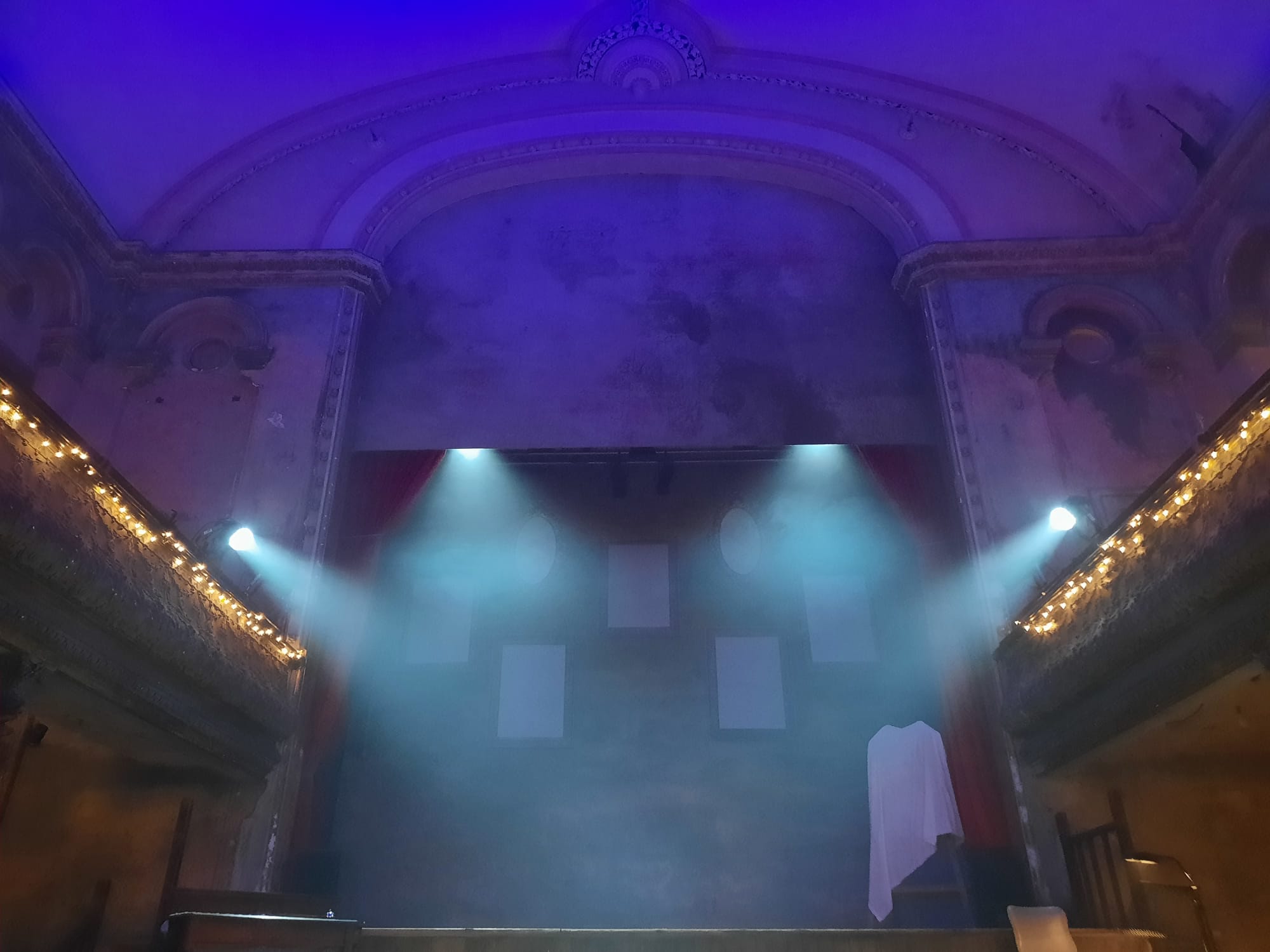Ruddigore – Oracle Productions / Wilton’s Music Hall, London
This pleasant production of one of Gilbert & Sullivan’s lesser-performed works, Ruddigore is full of ghostly fun and frivolity.

A ‘Difficult’ Gilbert & Sullivan
Gilbert and Sullivan operettas seem to be one of those things that attracts a very solid fan base. I’m more of a casual visitor into the Gilbert & Sullivan world, so I didn’t know anything at all about Ruddigore apart from that it seemed to be about ghosts. If you’re one of those fans, you know that Ruddigore is indeed about ghosts, but is also classed as a ‘difficult’ G&S work. Difficult how? Well, there isn’t one definitive version of it for a start. It was a bit controversial when it debuted. This was mostly to do with Victorian morals: it was originally called Ruddygore which was just a bit too rude; the soprano was out of tune; and there was a song which seemed to insult either the British or the French depending on how you understood it. Goodness me.
G&S quickly revised it, and a 1920s revival incorporated further changes. It makes it a little bit like Hamlet: directors need to do a ‘choose your own adventure’ through the various options. There are different possibilities for the finale, and a ‘patter song’ (ie. song with very fast lyrics) which those G&S aficionados will be upset not to see but in some ways isn’t their best work. One could surmise that Peter Benedict, who is behind this version of Ruddigore at Wilton’s, is one of those aficionados. I say that because he is director, producer, and also takes the part of Sir Despard Murgatroyd. I don’t have other versions to compare to, but Benedict seems to have charted a mostly smooth path.
Ruddigore
But what’s it all about? In a nutshell, it’s exactly what you would expect from G&S. There are various lovers, some comic older roles, and a lot of wordplay. It takes place in a village where there are professional bridesmaids on standby for some reason, but no bride. The lovely Rose Maybud (Madeline Robinson) might fit the bill. But her adherence to a book of etiquette makes it difficult for her to choose a suitable young man. Robin Oakapple (Joe Winter) would love nothing more than to be chosen, but he is harbouring a secret. And there is a family of Baronets cursed to commit a crime a day or die in terrible agony. Total and utter nonsense of the best kind. The ghosts come later.
There is also an additional storyline in this production layered into the overture. It involves several people arriving at a hotel, in modern dress, and drinking drugged wine. They soon reappear as the main characters in our story: Rose and Robin, his foster brother Richard Dauntless (Kieran Parrott), Sir Despard, and Mad Margaret (Charli Baptie). What is a little odd is that this storyline is never resolved – G&S productions are normally so reliable at tying up all the loose ends just in time, but I guess that’s just the original material.
I think what I rather enjoy about G&S is that it’s inconsequential. I don’t mean that as harshly as it might sound. It’s a great respite from the stresses of the day, to spend an evening listening to patter and innuendo, knowing it’s all going to work out alright in the end. It’s a bit like Victorian art as appreciated recently at Leighton House: enjoyable in a reassuringly low stakes sort of way. I mean this very genuinely so apologies to any fans of Gilbert & Sullivan (or Victorian art) I may have insulted.
A Fun Revival
We’ve established that I like a bit of Victorian frivolity. I don’t mind a ghost story either. And appreciated some good singing on the night. This production did feel a little like a group of performances rather than an ensemble, but mostly this worked out. Madeline Robinson as Rose is undoubtedly the performance to watch. She has a strong soprano voice and seems to be an up and coming star. Other cast members handle the comic aspects of their roles masterfully: Joe Winter as Robin Oakapple/Sir Ruthven Murgatroyd and Charli Baptie as Mad Margaret in particular. But I found the mix of singing styles made it slightly harder for me to follow some of the lyrics.
There are some innovative touches in the production, for instance the treatment of a set of ghostly family portraits in the second half. They helped to paper over where things ran out of steam a little: more an issue of Ruddigore being ‘difficult’ than anything else, I think. Another highlight in the second half was a touching romance and song between Dame Hannah (Rosemary Ashe) and Sir Roderic Murgatroyd (Steve Watts, last seen in The Canterville Ghost).
Overall, Ruddigore is a pleasant evening. I found myself laughing frequently at the silly fun, and found the production overall very entertaining. It’s best taken at face value, and as a good showcase of what makes Gilbert & Sullivan’s work enduringly popular. I also recommend the very informative programme for further reading.
Salterton Arts Review’s rating: 3/5
Ruddigore on until 25 March 2023
Trending
If you see this after your page is loaded completely, leafletJS files are missing.

